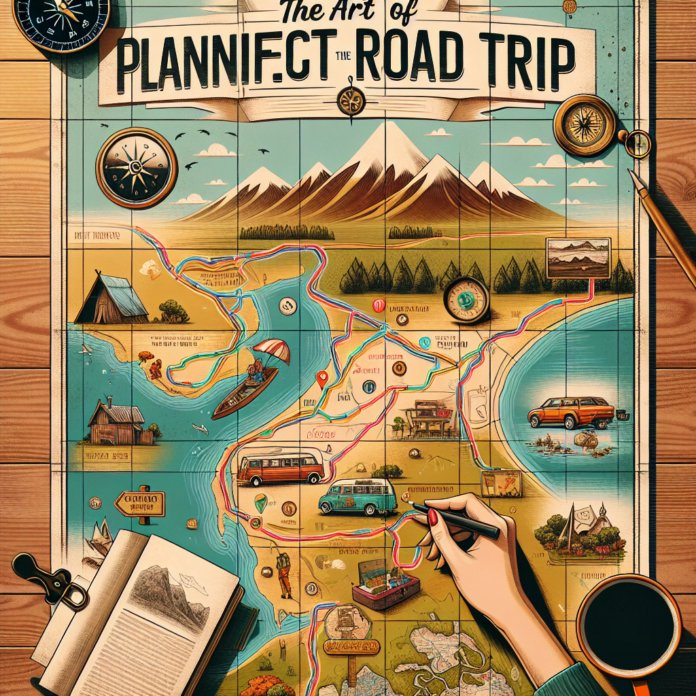A memorable road trip can be the highlight of your summer, a fantastic way to explore hidden gems, escape the daily grind and experience the thrill of the open road. Crafting the perfect road trip requires a considerable amount of planning, but with a carefully thought-out plan, your road trip will turn into an unforgettable experience. In this article, we will guide you on the art of planning the perfect road trip.
The Art of Planning
The planning process begins with an idea, a spark of wanderlust that sets your trip in motion. Start by brainstorming your ideal destinations, identify places that you’ve always wanted to visit, or maybe revisit an old favorite. It might be a national park, an iconic monument, or a city radiating with culture and history.
Afterward, draw your route on a map, either digitally or on a physical one. Identify the stops and plot them on your map. A good rule of thumb is to schedule a rest stop or place of interest every two to three hours. Keep in mind that road trips are not about the destination alone, but about the journey and the immersion in different landscapes and towns along the way.
Research Your Stops
It’s essential to do your homework about the places you’ll visit. This includes local customs or rules, the best times to visit, the must-see sights, and the recommended restaurants.
Consider reading online reviews or reaching out to travel bloggers who have been to these places before. They can give you insider tips and tricks to maximize your experience. Recognize that sometimes, the road less traveled can lead to the most unforgettable experiences.
Prepare Your Car
A road trip puts your vehicle to the test, so make sure it is up to the challenge. Check your vehicle’s oil levels, tires, battery, lights, brakes, and other crucial parts. Keep a spare tire and basic tools on hand in case of emergencies, and don’t start your trip without roadside assistance coverage.
Packing for Your Trip
The packing stage is where you decide what you’ll bring with you on your journey. Include clothes appropriate for the weather, toiletries, snacks and water, and essential road trip items like a first aid kit, jumper cables, and a flashlight.
If you plan to camp along the way, pack your camping gear, including tents, sleeping bags, and cooking equipment. If hotels are more your style, reserve your rooms ahead of time to secure your stay.
Create a Road Trip Playlist
Music is an essential part of a road trip. Take some time to create a playlist with a mix of your favorite songs, or explore pre-made playlists curated for road trips available on popular music streaming platforms. The right soundtrack can set the mood for your journey and make the miles fly by.
Stay Flexible
Lastly, while thorough planning is crucial, a perfect road trip needs an element of spontaneity. Be open to last-minute detours or unplanned stops. That roadside oddity or local diner you stumble upon might become one of the highlights of your trip.
Conclusion
Planning a road trip can seem like a daunting task, but it doesn’t have to be. With careful preparation, some research, and a bit of flexibility, road trips can be incredible adventures filled with breathtaking landscapes, intriguing stops, and unforgettable experiences. Remember, at the heart of it, a road trip is about adventure, discovery, and the freedom of the open road. So fuel up, pack your bags, and hit the road on another thrilling voyage.
FAQs
What are some must-have items for a road trip?
Essential items include a first aid kit, roadside emergency kit, navigational aids like a GPS or a physical map, spare tire and tools, water, snacks, and appropriate clothing for your destinations.
How can I make the journey more enjoyable?
Prepare a road trip playlist, bring along some audiobooks or podcasts, and don’t forget games and activities if you’re traveling with children. Regular breaks and stopovers at interesting locations will also make the journey more enjoyable.
Do I need a detailed plan for my road trip?
Having a plan for your road trip is important, but it doesn’t need to cover every minute detail. The plan should provide a framework and highlight the vital points of your trip, such as your destinations, route, and overnight stops. Be flexible and adjust your plan as needed to adapt to unexpected circumstances or exciting opportunities.

